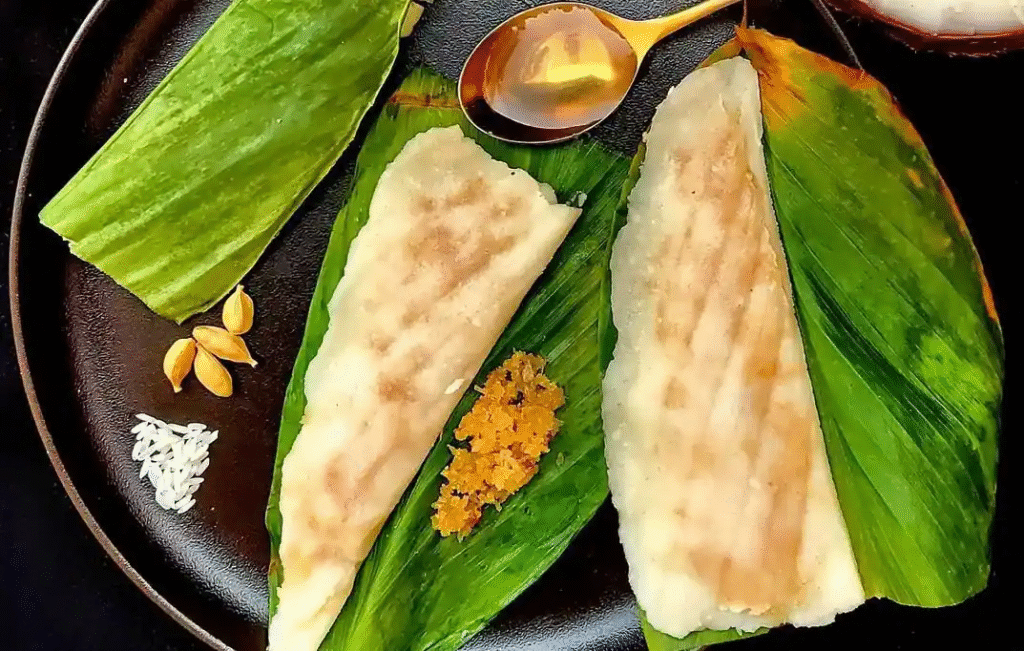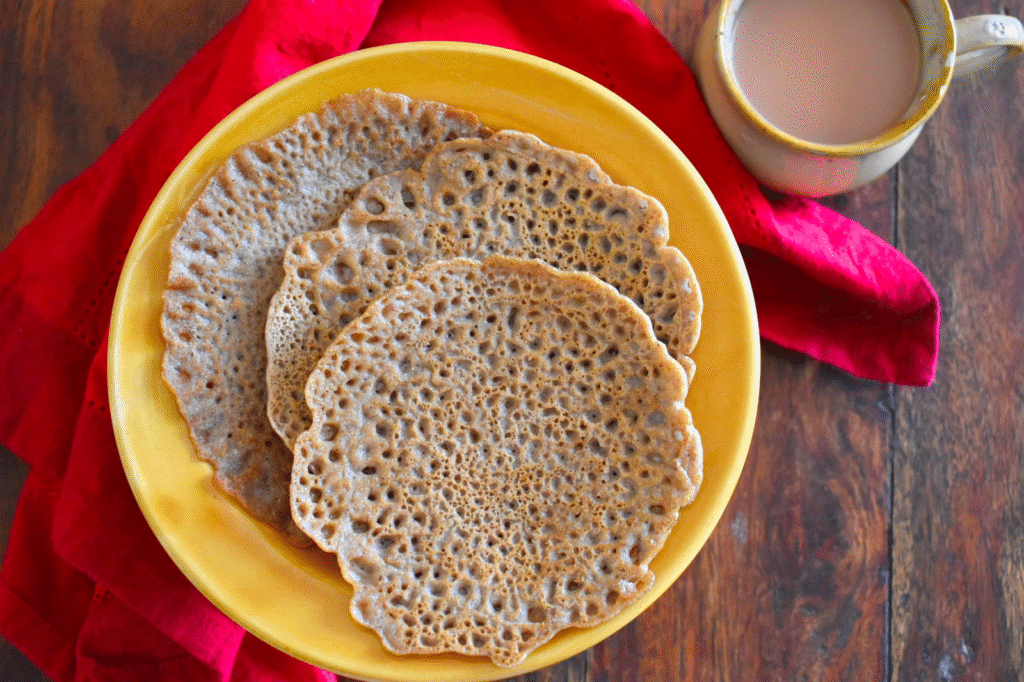India is often celebrated for its iconic dishes like butter chicken, biryani, dosa, and paneer tikka. While these favorites are undoubtedly delicious, they barely scratch the surface of the country’s rich food diversity in India. Beyond the spotlight lies a treasure trove of lesser-known regional delicacies that are bursting with flavor, culture, and history. In this blog, we’ll take you on a flavorful journey to discover underrated Indian dishes you’ve probably never tried—but definitely should.
1. Bhutte Ka Kees – Madhya Pradesh
Bhutte ka Kees is a flavorful corn-based dish from Indore in Madhya Pradesh. Made with grated fresh corn cooked in ghee, spiced with green chilies, ginger, and a hint of asafoetida, this dish is a perfect blend of sweet and spicy.
Why it’s special:
It uses minimal ingredients and showcases how simple flavors can result in a delicious dish. Often eaten as a snack or breakfast item, it’s a unique alternative to the usual poha or upma it is an truely example of the vast food diversity in India

2. Patoleo (Patoli) – Goa
A traditional Goan sweet dish made during festivals like Nag Panchami and Independence Day, Patoleo involves turmeric leaves stuffed with a mixture of rice flour, coconut, and jaggery, then steamed to perfection this dish is truly an example of food diversity in India
Why it’s special:
It combines medicinal properties of turmeric leaves with the natural sweetness of jaggery and coconut. The leaf infuses a distinct aroma that makes it stand out from typical Indian sweets

3. Chhena Poda – Odisha
Often dubbed as “Indian cheesecake,” Chhena Poda is a baked dessert from Odisha. The Chhena Poda recipe is quite simple. It is made with fresh chhena (a form of paneer), sugar, and semolina. What makes it unique is its smoky, caramelized flavor.
Why it’s special:
Despite being the state dessert of Odisha, it hasn’t received the national recognition it deserves. The slow baking process creates a crusty top and gooey inside—completely addictive!

4. Kalari Cheese – Jammu & Kashmir
Kalari, also known as the “Mozzarella of the Hills,” is a traditional Himalayan cheese from Jammu. It’s made from cow or goat milk, sun-dried, and then shallow-fried before serving.
Why it’s special:Crispy on the outside and melting on the inside, it’s a street food delicacy in Jammu that deserves a gourmet spotlight and it is a truly example of the food diversity in India. Perfect for cheese lovers looking for something different from European varieties.

5. Thecha – Maharashtra
Thecha is a fiery chutney made with crushed green chilies, garlic, and peanuts. It’s a staple in rural Maharashtrian kitchens and pairs wonderfully with bhakri (millet flatbread).
Why it’s special:
Though simple, it packs an intense punch of flavor and embodies the rustic, spicy essence of the region. It’s the unsung hero of traditional Maharashtrian meals it signifies the vast food diversity in India

6. Bhein Ki Sabzi – North India (Punjab/UP)
Made with lotus stem (called “Bhein” in Hindi), this dish is crunchy, earthy, and often cooked in a tomato-onion masala gravy or dry spiced form.
Why it’s special:
Lotus stem is nutritious and rich in fiber, yet it’s often overlooked in mainstream Indian cooking. This dish offers a refreshing change from the usual paneer or potato-based sabzis.

7. Mizo Bai – Mizoram
Mizo Bai is a mild vegetable stew from Mizoram made with local greens, bamboo shoots, and pork or fermented ingredients. It’s light, healthy, and deeply comforting.
Why it’s special:
It showcases the food philosophy of the Northeast—minimalism, freshness, and fermentation. It’s perfect for those looking to explore clean-eating traditional dishes it is a lively example of the food diversity in India

8. Pakhala Bhat – Odisha
Pakhala bhat is fermented rice soaked in water and curd, often served with fried or mashed vegetables. It’s especially eaten during the hot summer months slowly the dish is gaining the popularity it deserves
Why it’s special:
Fermented foods are all the rage globally for gut health, and Pakhala is India’s own probiotic wonder. Cool, tangy, and nutritious—what’s not to love it showcases how vast is food diversity in India?

9. Litti Chokha – Bihar
Although gaining popularity in recent years, Litti Chokha still isn’t mainstream across most Indian cities. Litti is wheat dough balls stuffed with roasted gram flour and spices, served with mashed veggies (chokha) and ghee.
Why it’s special:
It’s a wholesome, earthy dish that’s deeply satisfying and speaks of Bihar’s rich culinary roots. It’s also great for those on gluten-heavy or high-protein diets it represents the culture and the food diversity in India

10. Khura – Arunachal Pradesh
Khura is a pancake made with buckwheat flour, commonly eaten for breakfast in Arunachal Pradesh. It’s usually served with butter tea or spicy chutneys.
Why it’s special:
Buckwheat is gluten-free and nutrient-rich. This dish is a hidden gem in Indian showcasing and representing the hill cuisines and the vast food diversity in India and it is a great addition to your breakfast table.

11. Pesarattu – Andhra Pradesh
This green dosa is made from moong dal and is usually stuffed with onions or upma. Though popular in Andhra, it’s often overshadowed by masala dosa on the national level there is mla pesarattu , egg pesarattu
Why it’s special:
It’s protein-rich, gluten-free, and incredibly satisfying. Perfect for a healthy and hearty breakfast.

12. Khar – Assam
Khar is both a dish and an ingredient unique to Assamese cuisine. Made with raw papaya, pulses, and alkaline water filtered through sun-dried banana peels, it’s a cultural and culinary experience.
Why it’s special:
It’s symbolic of Assam’s food identity and uses a cooking method unseen in other parts of India. The taste is subtle, earthy, and utterly unique.

Why These Dishes Deserve Attention
India’s regional cuisines are deeply rooted in local ingredients, traditions, and climates. These underrated dishes represent:
- Sustainable cooking methods (e.g., fermentation, sun-drying)
- Ancient wisdom and health benefits
- Untapped flavor profiles that can surprise even seasoned foodies
In the age of food trends, fusion, and social media-ready plates, it’s important to shine a light on authentic dishes that preserve cultural stories.
Final Thoughts
If you’re tired of eating the same butter naan and paneer combo, it’s time to expand your palate. From the smoky richness of Chhena Poda to the fiery zest of Thecha, these underrated Indian dishes offer a refreshing and rewarding experience.
Next time you explore a new Indian restaurant or plan a culinary adventure at home, remember to dig a little deeper into the diverse and flavorful world of regional Indian cuisine. You just might discover your new favorite dish hiding in plain sight and it will also let you know the wide food diversity in India
Read our latest blog also: https://hotdropdaily.com/?p=419

